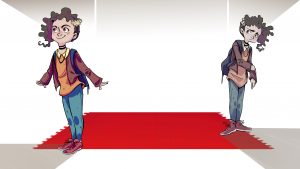Ofsted and the Quality Improvement Soap Opera

Just had my year made by Catherine Gray, of East Coast College. When I was a full-time HMI, and after many years on the front-line, one of my main roles was to manage the Good Practice Database. A huge privilege; finding the best and most innovative ways to broadcast the great work that providers were doing, such that others could explore opportunities for improving their own work. But wonderful as this work was, I knew that Ofsted’s approach to accountability monitoring, and my ‘little bit on the side’, was not the answer to quality improvement across our sector. There had to be another way. This was 2007/8.
I became fascinated by the new Facebook phenomenon and amazed at how interested people could be in the sharing of the most prosaic images – not untypically, a pint of beer and a lovely view beyond. I quickly realised that this new urge to ‘share and view’ was tapping into the same vein as the soaps and reality shows. It was addictive.
And this is what we needed quality improvement to be: addictive; a ‘soap opera’.
I imagined communities of teachers posting updates that were extremely frank about the challenges they face every day in the classroom – even giving pseudonyms for the learners who were at the centre of the headaches. And in sharing these narratives, the online community would give their own versions of the same challenges and also add strategies they were using to try to resolve them. And we’d all be desperate to find out what would happen – tuning in daily for updates!
I imagined not the passive experience of reading a case study, but the immersion in real research – not by academics chasing a PhD, but by teachers chasing a solution. Imagine that: ‘quality’ being driven by teachers wanting to improve a specific aspect of provision – not by mangers with an accountability hat on… Now think what Ofsted does, and all those management teams who think their quality systems should be as close to Ofsted’s as possible – it makes teachers want to hide their challenges, rather than celebrate the journey to resolving them…
As you can imagine, back in 2007, Ofsted wouldn’t think differently about improvement, and even pushed my Good Practice Database off into LSIS. So in 2010, I left to set up the Centre for Creative Quality Improvement. A grand title for my consultancy, but then, I had grand plans, as you can see.
My hypothesis was that the way we observed teachers was at the heart of an organisation’s culture. To illustrate, in my observation training sessions, I’ve had teachers recount ‘horrific’ (as they put it) experiences of being observed 10 or 15 years ago. And they’re still smarting from the experience! I believe that too often, Ofsted-style quality systems damage teachers permanently.
All of these experiences helped me develop The RED System – RED standing for Research into Education, & Development. The idea is that all teachers become researchers into how to improve the difference they make and how to have an easier life. Observations are carried out in Creative Learning Teams (CLT), which are groups of four teachers, supported by a CLT leader. This is still a judgement-rich process, however, the only person allowed to make any judgements is the teacher. All of the other CLT members can only ask questions or present scenarios of what they saw. It’s definitely not the easy option, but it has none of the baggage of the Ofsted-style.
Clearly, as an outsider, all I do is give an organisation my model and teach them how to use it. I then have to walk away with my fingers crossed. This can be frustrating, as I’m always desperate to know the difference RED makes. So you can imagine how I felt this last week when I read Catherine Gray’s article in FE Week: How we’re putting research at the heart of staff training and development. She’s not just made my day, she’s made my year.
The image accompanying this article is called The Walk Across the Carpet. It’s designed to get people to fixate on how they want their learners to be different by the end of a lesson – rather than what they will ‘do’ in the lesson. And, of course, it works just the same for observation systems: ‘how do you want your teachers to be different after an observation?’
Catherine’s article is a wonderful account of staff at ‘the other side of the carpet’.
But I’m not sure if I’m more excited by her article, or a comment that one of her staff made about it. You can read Matthew Yeldham’s follow-up here.
And finally, here’s a short film showing East Coast College’s staff using RED: www.ccqi.org.uk/red.




Comments
No comments yet